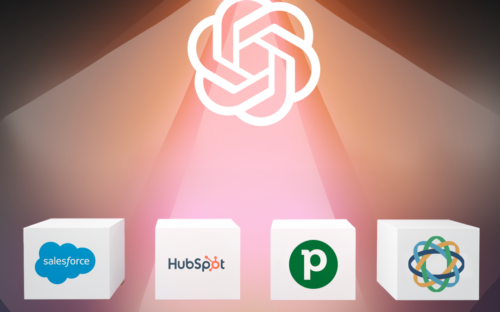Article's Content
HubSpot is a game changer that many businesses rely on due to its multifaceted capabilities. It’s no longer just an inbound marketing tool and has evolved into a solution that provides services for sales teams, marketing teams, customer success teams and operations in general.
Think of HubSpot as a Swiss army knife for business management, equipped with a tool for nearly every challenge you might face.
From customer relationship management to marketing automation, HubSpot provides a platform designed to streamline various aspects of business operations. Here are some of Hubspot’s key features:
- Customer Relationship Management: HubSpot’s CRM system is designed to help businesses manage and analyze customer interactions and data throughout the customer lifecycle. This system is user-friendly and integrates seamlessly with other tools.
- Marketing Automation: Businesses can automate their marketing campaigns across multiple channels, including email, social media, and content management, ensuring consistent and personalized customer engagement.
- Email Marketing Services: HubSpot offers powerful email marketing tools that allow businesses to create, personalize, and optimize email campaigns for maximum impact.
- Sales Tools: HubSpot’s sales tools help businesses track leads, manage sales pipelines, and automate sales processes, enabling more efficient and effective sales operations.
- Customer Service Tools: HubSpot’s customer service tools include help desk software, live chat, and customer feedback management, helping businesses provide exceptional customer support.
- Content Management System: HubSpot’s CMS allows businesses to create, manage, and optimize website content easily, providing a seamless experience for both marketers and developers.
HubSpot’s wide range of features and capabilities allows it to serve diverse business needs, from startups to established enterprises. But that doesn’t mean HubSpot is the best option for every business.
But, just as a Swiss army knife might lack certain specialized tools, HubSpot might not cover every specific requirement for every business.
Different businesses have unique needs that might require specific features or specialized tools that HubSpot doesn’t fully include. With that said, let’s explore key considerations when choosing a HubSpot alternative.
Choosing the Right HubSpot Alternative
When searching for a HubSpot alternative, it’s crucial to first identify your specific business goals and requirements. Here are some key factors to consider:
- Specific Needs: Determine what you need most from a CRM or marketing tool. Is it advanced sales automation, detailed reporting, comprehensive customer support features, or another specific function?
- Budget: Consider your financial constraints. HubSpot offers various pricing tiers, but some alternatives might provide similar or even better features at a lower cost.
- Ease of Use: Evaluate how user-friendly the platform is. A steep learning curve can hinder your team’s productivity.
- Scalability: Ensure that the alternative can grow with your business, offering features and integrations that you may need in the future.
- Integration Capabilities: Check if the alternative integrates well with your existing tools and systems.
The Best HubSpot Alternatives
Now that you’ve identified your business goals and requirements, we can dive into the best Hubspot alternatives. By exploring these alternatives, you can find a platform that better suits your business needs and ensures efficient and effective management of your operations.
1. Salesforce: A HubSpot Alternative for an All-in-One Sales and Marketing CRM
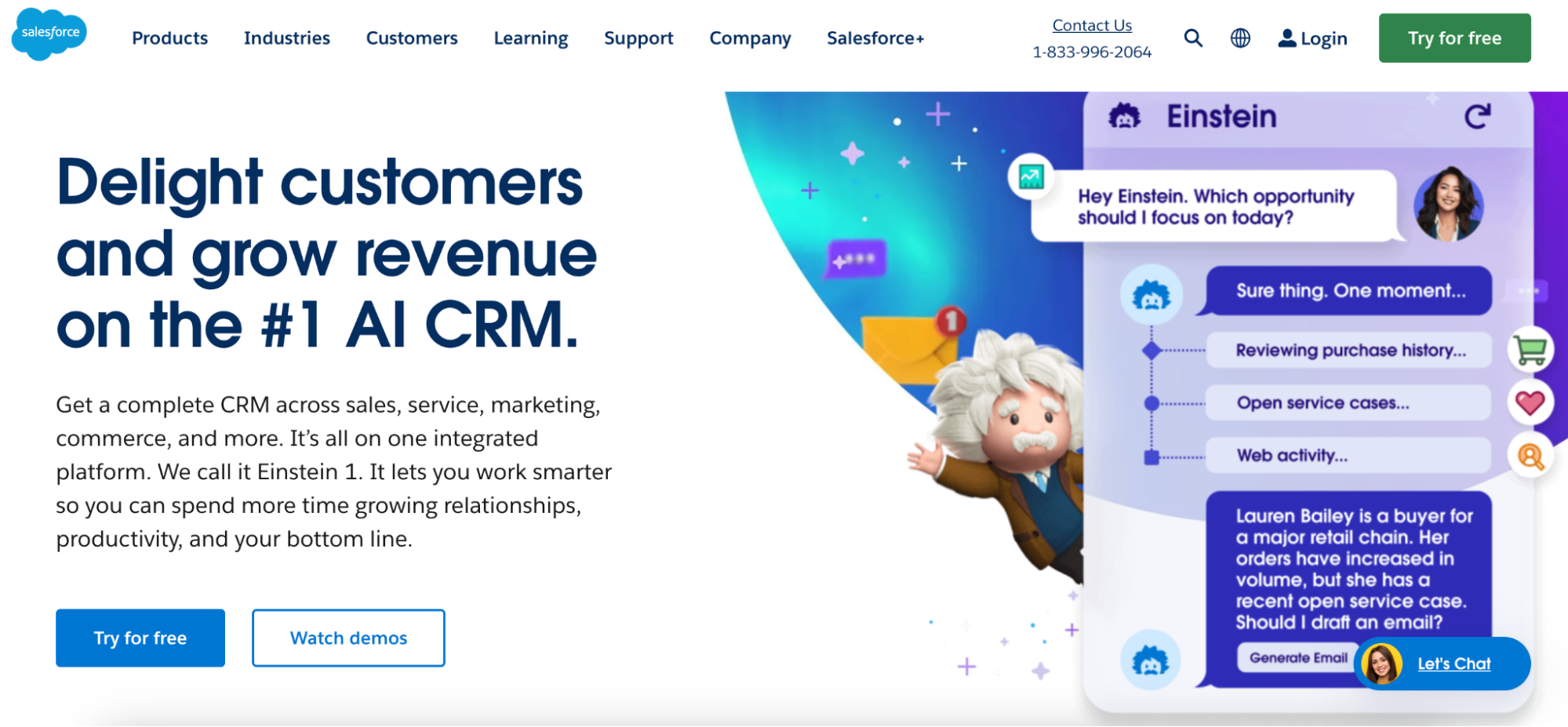
Salesforce Sales Cloud is a leading HubSpot alternative for those seeking an all-in-one sales and marketing CRM.
While both HubSpot and Salesforce offer extensive marketing and customer management features—such as CRM, sales forecasting, analytics, and customer service—there are significant differences.
HubSpot is often viewed as an inbound marketing tool, whereas Salesforce is associated with sales automation. This difference affects the user interface, feature availability, and pricing structure.
HubSpot’s bundled marketing features offer a cleaner, user-friendly experience, while Salesforce’s customizable interface can be more complex.
Salesforce also excels in sales reports and forecasting, making it a strong contender if those are your primary needs. Additionally, Salesforce offers more third-party apps and integrations than HubSpot, expanding its functionality.
Pros:
- Robust AI-powered marketing features
- Highly customizable
Cons:
- Less intuitive layout
- Higher cost for similar functionality as HubSpot
Pricing: Sales Cloud Starter starts at $25/user/month.
For those focused on outbound campaigns and marketing automation, Salesforce’s Marketing Cloud Account Engagement (formerly Pardot) offers more powerful features, including advanced predictive analytics.
MCAE Pricing: Growth plan starts at $1,250/month for up to 10,000 contacts.
2. Zoho CRM: A HubSpot alternative for an affordable CRM
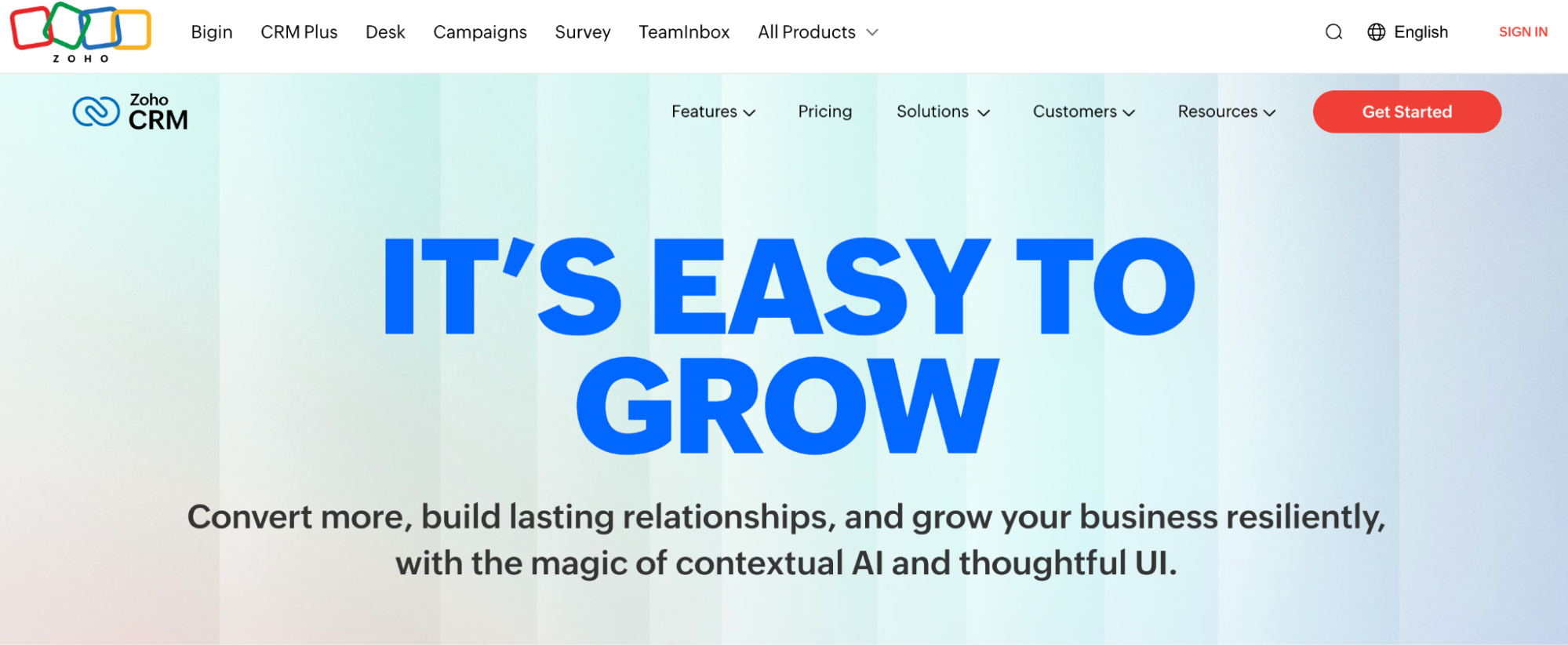
Zoho CRM is an affordable alternative that competes effectively with HubSpot across several fronts. While both platforms provide essential CRM features, Zoho distinguishes itself with its simplicity and cost-effectiveness, making it particularly attractive for smaller businesses.
One of Zoho’s standout features is its project interface, utilizing a Kanban board for streamlined task management. Although its interface may be less intuitive compared to HubSpot, Zoho’s affordability makes it a viable choice for a wide range of businesses.
Pros:
- Native AI features (available at higher tiers)
- Strong project management capabilities
Cons:
- Unintuitive interface
- More limited tools compared to HubSpot
Pricing: Standard plan starts at $20/user/month.
3. Mailchimp: A HubSpot alternative for email marketing
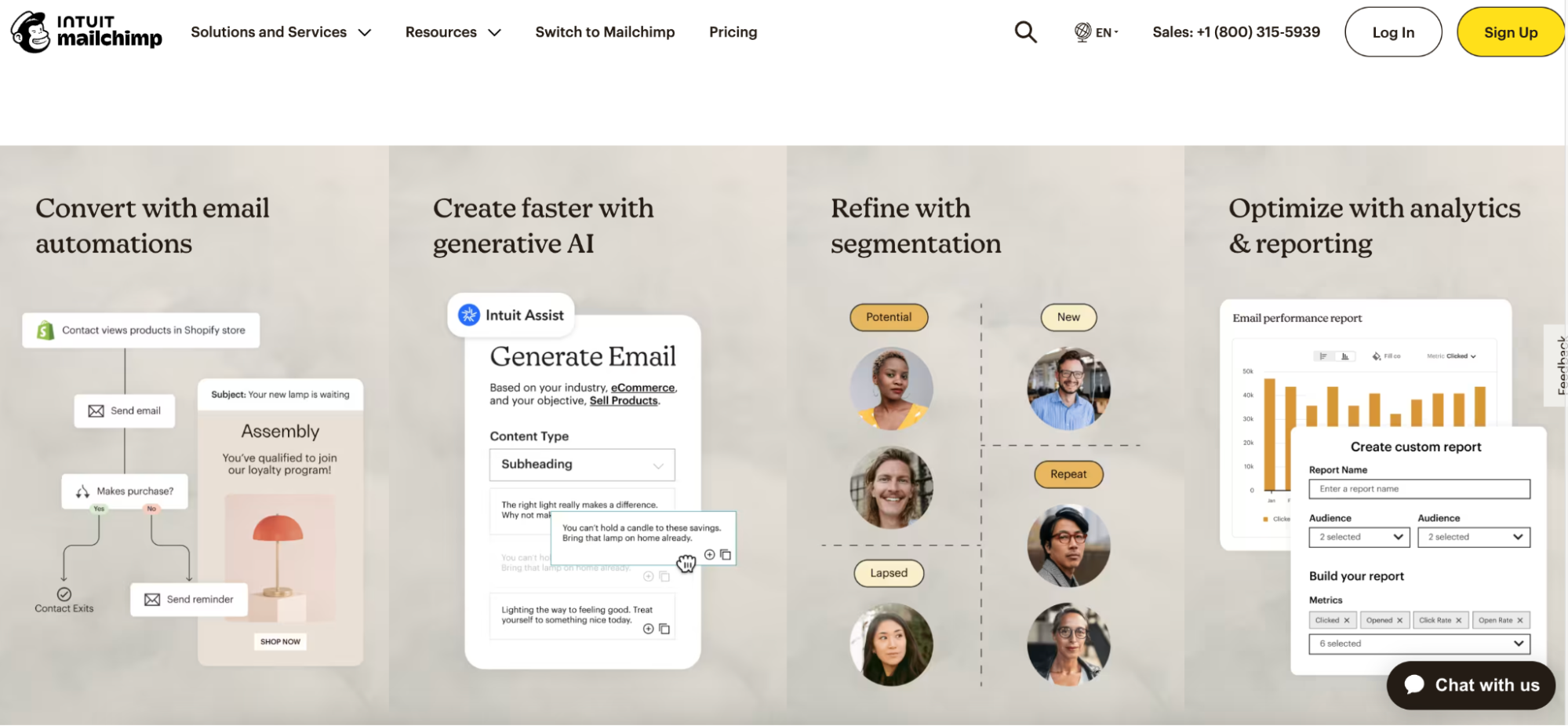
If your main focus with HubSpot is outbound marketing, Mailchimp presents itself as a simpler and cost-effective alternative.
It excels with intuitive email builders that require no prior design experience, robust reporting tools for tracking campaign performance, and efficient tools for creating functional landing pages.
However, unlike HubSpot, Mailchimp does not offer extensive CRM capabilities, which may be a consideration for businesses needing comprehensive customer management tools alongside their marketing efforts.
For organizations that prioritize email marketing and basic marketing automation, Mailchimp’s straightforward approach and affordability make it an attractive choice.
Pros:
- Easy to build and send emails
- Good selection of out-of-the-box templates
Cons:
- Basic analytics and automation workflows
- Limited social media functionality
Pricing: Essentials starts at $13/month for up to 500 contacts.
4. Pipedrive: A HubSpot alternative for a sales-focused CRM
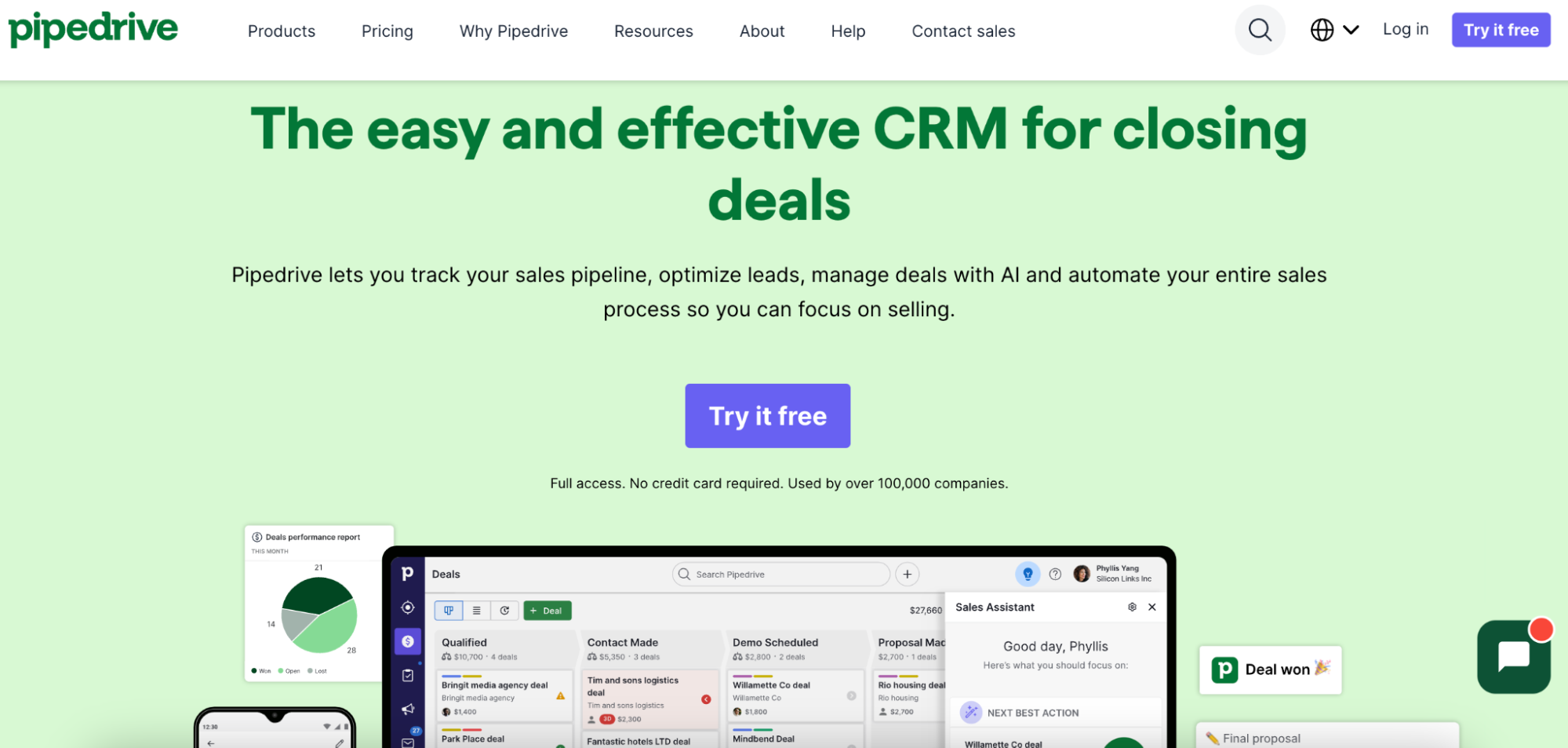
Pipedrive focuses specifically on sales support, providing intuitive dashboards and robust analytics designed to effectively manage sales pipelines. Compared to HubSpot, Pipedrive is a more budget-friendly option, emphasizing sales management over comprehensive CRM functionality.
Its user-friendly interface simplifies the process of tracking and optimizing sales processes, making it ideal for businesses that prioritize sales efficiency.
However, unlike HubSpot, Pipedrive’s features are geared more towards sales-specific tasks rather than encompassing a broader range of CRM capabilities like marketing automation and customer service management.
This makes Pipedrive a strong contender for companies seeking streamlined sales operations without the need for extensive CRM features.
Pros:
- Easy-to-understand analytics
- AI sales assistant with actionable suggestions
Cons:
- No free plan
- Lacks generative AI for content
Pricing: Essential plan starts at $22/seat/month.
5. ActiveCampaign: A HubSpot Alternative for Marketing Automation
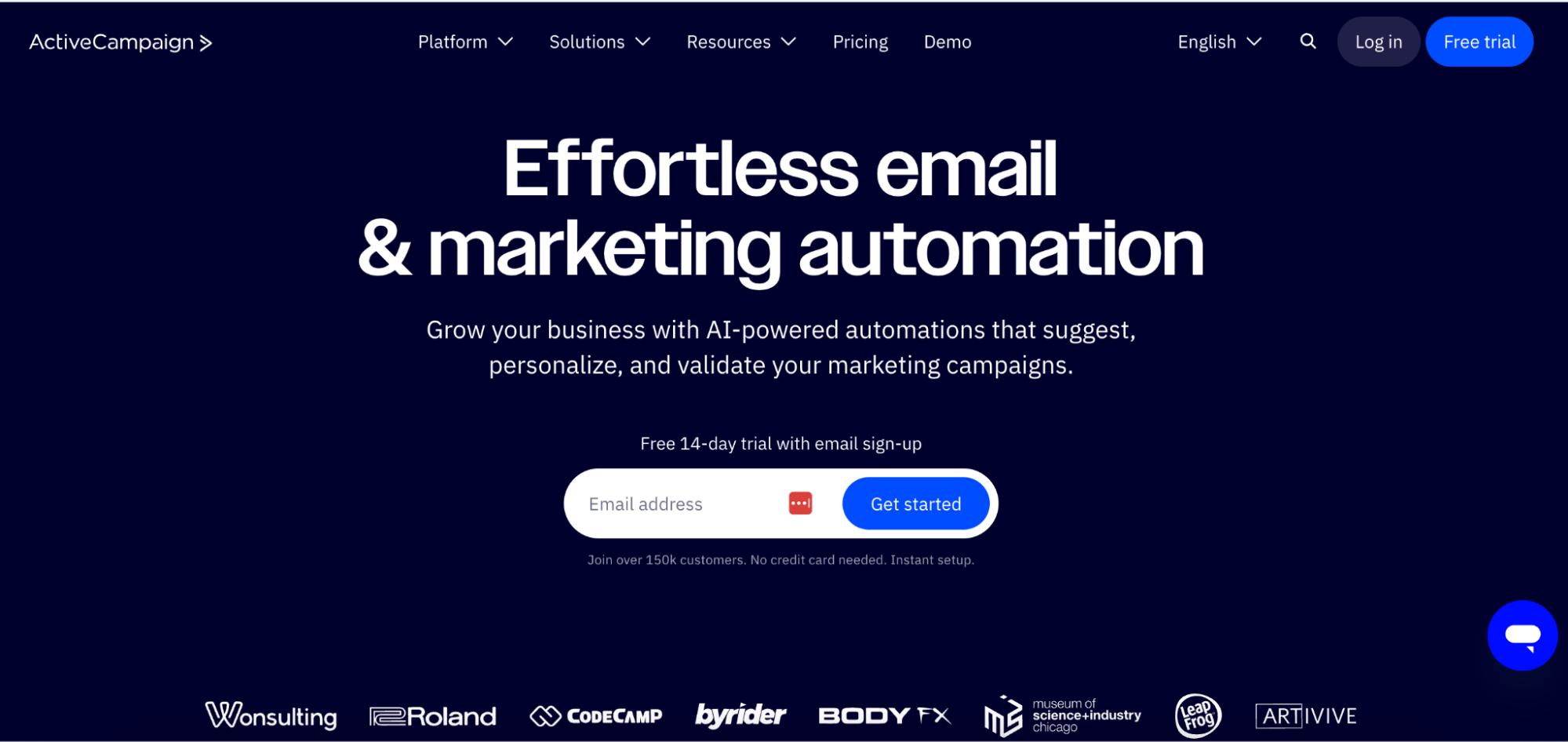
ActiveCampaign is a CRM platform with an emphasis on marketing automation. It features smooth onboarding, a wide array of templates, and a customizable pipeline-interface that enhances workflow management.
While it may not offer the same breadth of features as HubSpot, ActiveCampaign excels with its powerful automation capabilities, allowing businesses to create detailed, automated workflows that streamline marketing and sales processes.
For companies focused on enhancing their marketing automation without the full scope of a comprehensive CRM, ActiveCampaign is a good choice.
Pros:
- Easy report creation and data integration
- Free data migration
Cons:
- More limited feature set
Pricing: Marketing Lite starts at $29/user/month for up to 1,000 contacts.
6. Zendesk: A HubSpot Alternative for Help Desk Software
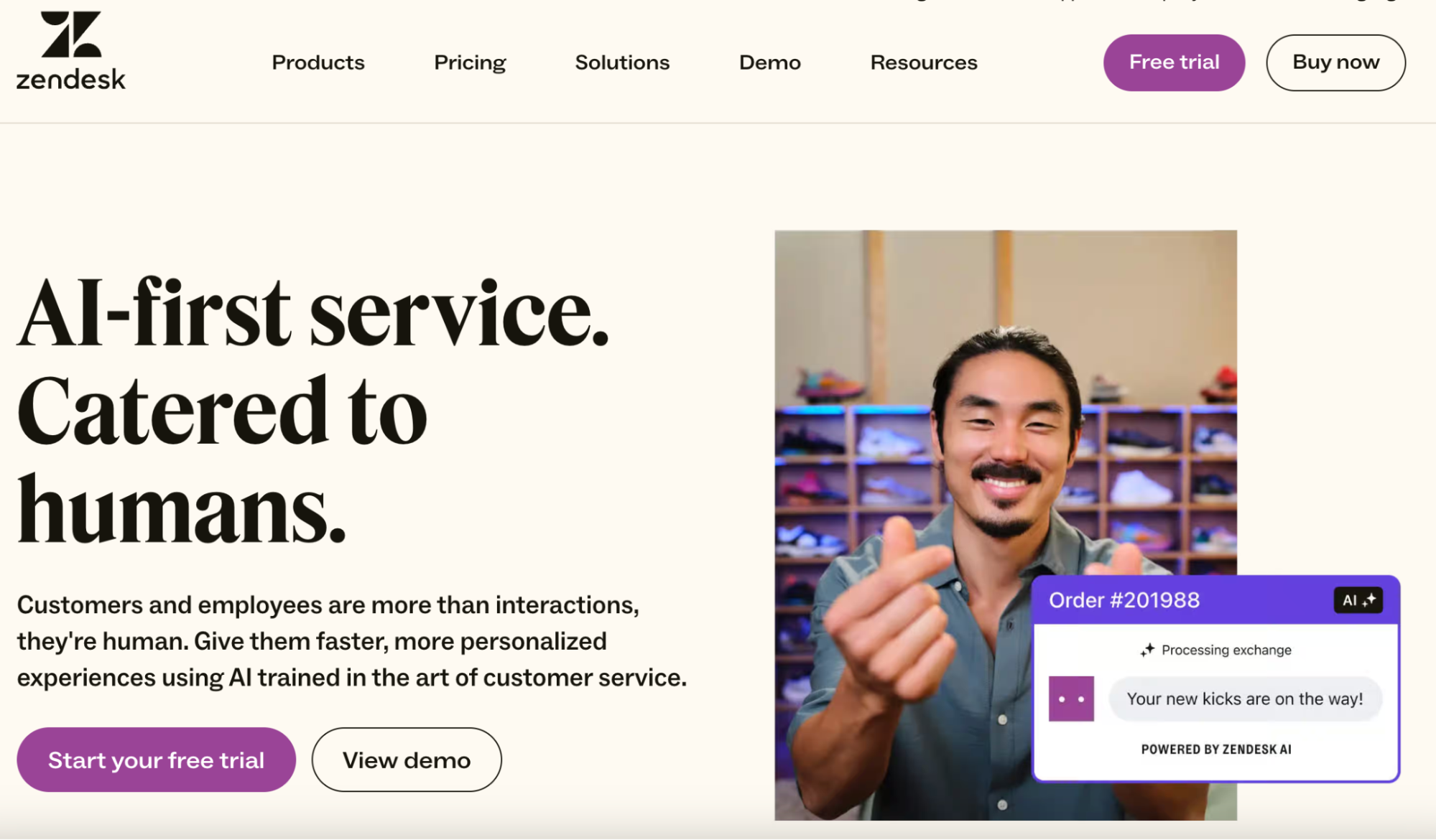
Zendesk is a user-friendly customer support tool acclaimed for its advanced reporting and comprehensive metrics.
It features customizable chatbots that improve customer interactions and streamline support processes. Although it comes with a higher cost, Zendesk’s robust capabilities justify its price tag.
Businesses using Zendesk gain detailed insights into support performance across channels like email, chat, and social media. Customizable workflows and automated responses boost efficiency and enhance customer satisfaction.
For organizations valuing advanced reporting and personalized customer service, Zendesk stands out as a prime option.
Pros:
- Customizable chatbots
- Comprehensive reporting features
Cons:
- Higher cost
Pricing: Basic Support Team plan starts at $19/agent/month; Suite Team starts at $55/agent/month.
7. Close: A HubSpot Alternative for Inside Sales Teams

Close is a powerful CRM designed specifically for inside sales teams, making it an excellent alternative to HubSpot for businesses that prioritize sales efficiency and communication.
Unlike HubSpot, which offers a broad range of marketing and customer service tools, Close focuses primarily on optimizing sales processes and improving team productivity.
Pros:
- Comprehensive communication tools integrated into the CRM
- User-friendly interface with robust pipeline management
- Effective task automation features
Cons:
- Limited marketing and customer service capabilities compared to HubSpot
- Higher pricing tiers for advanced features
Pricing: Close offers a Startup plan at $49/user/month, a Professional plan at $99/user/month, and an Enterprise plan at $139/user/month for advanced features and integrations.
Which HubSpot Alternative Should You Use?
To understand which Hubspot alternative you should use, start by evaluating your business’s specific needs across key areas like contact management, email marketing, lead nurturing, customer support, sales pipelines, and content updates.
Assess your resources available for onboarding and troubleshooting, and carefully weigh the financial investment required. By thoroughly evaluating these factors, you can pinpoint the CRM solution that aligns most closely with your unique business goals and operational requirements.
This approach will ensure you choose a CRM that not only meets your current needs but also supports your long-term growth and success.
Disclaimer: We receive commission on purchases made through links on this page.







